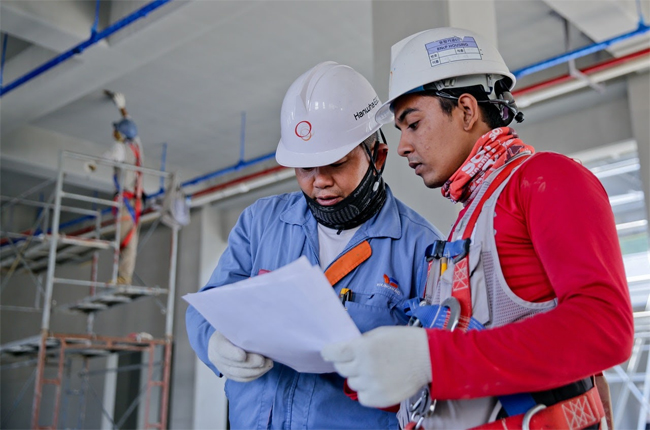
Construction projects are challenging in a lot of ways, and they require project managers to have extensive knowledge of the industry together with a capability to organize work strategically in an environment filled with unique problems that have to be solved. Professional construction project management team work closely with architects, engineers, and other construction workers to provide seamless integration between all stages of the construction process. From concept to project closeout, these experts provide proactive problem-solving solutions to any construction project.
The successful completion of a job heavily relies on delivering quality work to your clients on time and within budget, and all that while bringing profit to your construction company.
The thing that makes a difference between achieving these goals and failing to meet a deadline while incurring additional costs is effective construction planning.
Here are a few tips on how to ensure your construction project is a success.
1. Define the Scope
In order to set your project goals and objectives, it’s crucial to first define the scope of your project.
This way, you’ll be able to create a project timeline, provide equipment, allocate tasks, and give directions to your employees.
Defining the scope properly requires splitting it into a number of tasks that have to be completed and assigning all the necessary activities required for every task. For example, if we’re talking about installing electrical wiring systems, you need to establish and list all the activities involved in the process.
The next step is determining all the resources you need, including manpower, equipment, and materials, in order to complete each task. Consider everything that has to be provided for the site since you’ll have to secure construction site accommodation and welfare facilities, get a folding bed for every cabin, and make sure all the heavy machinery is available.
This will allow you to make cost estimates for each task as well as a timeline.
Bear in mind that even though you have defined the scope, it may change, so be ready to handle these shifts in order to prevent scope creep.
2. Communicate Effectively
An effective flow of information is essential for executing your construction plan successfully.
Construction work time tracking is a construction management tool that can be used to help construction managers effectively communicate construction project information to all project stakeholders. Construction work time tracking allows construction managers to input construction project data, such as crew size, equipment type, and start and finish times for each construction task. This construction project data is then displayed in an easy-to-understand format that can be shared with construction project owners, construction contracting firms, and other construction project stakeholders.
By including every stakeholder, supplier, and relevant employee in the plan, you’ll make the entire process transparent and smooth. This means keeping everyone on the same page and preventing an avalanche of emails and phone calls whenever a problem occurs.
Syncing all the documents, comments, photos, and calendars into a work execution platform is the best way to organize a flow of communication. It allows everyone involved to monitor changes and updates as they occur and enables you to get in touch with other managers and offices using real-time alerts, thus helping you coordinate all the activities on the construction site effortlessly and effectively.
3. Familiarize Yourself With the Site

In many cases, you’ll have to see the issue on the construction site in person before you can resolve it.
That’s why familiarizing yourself with the site before you can start planning your project is a must. Similarly, carrying out regular site inspections should be part of your regular routine, as that’s how you’ll check on-site compliance and working conditions, as well as ensure that all safety standards are in place.
Given that construction jobs are demanding and risky, invest in a 10 hour worker SST package to make sure that your staff is well-trained to deal with safety hazards.
Although a great portion of a construction project manager can be automated and handled remotely, regular site visits and meetings with the contractors on the ground are still required.
4. Stay Flexible
The proper execution of a construction project depends on your ability to stay flexible, manage your expectations, and plan continually.
It’s very likely that not everything will go as planned, which means that you’ll have to make adjustments to your initial plan and do it on the fly. Bear in mind that every single change you make can have a big impact on the final outcome.
Another important aspect is paying attention to the feedback of your stakeholders, customers, and colleagues, as that’s how you’ll be able to anticipate and prevent a potential crisis before it snowballs into a problem.
Having realistic expectations is the key to a successful project because if you set tight deadlines and assign too much work to your employees, your project can result in failure to deliver high-quality outcomes on time.
Following these four tips can help you and your team streamline your workflows and ensure the success of your every project.
Stephen Jones is a freelance writer and a new father. “Becoming a father for the first time is not easy, but it is so much happiness that complicated things are handled in the best way because the baby is the fruit of love and he brings great satisfaction.” Stephen enjoys writing about health, food, nutrition, and children’s health for other parents. “Freelance writing has always been my passion so I combined the two and hopes to be able to share my passion with others!”
Leave a Reply